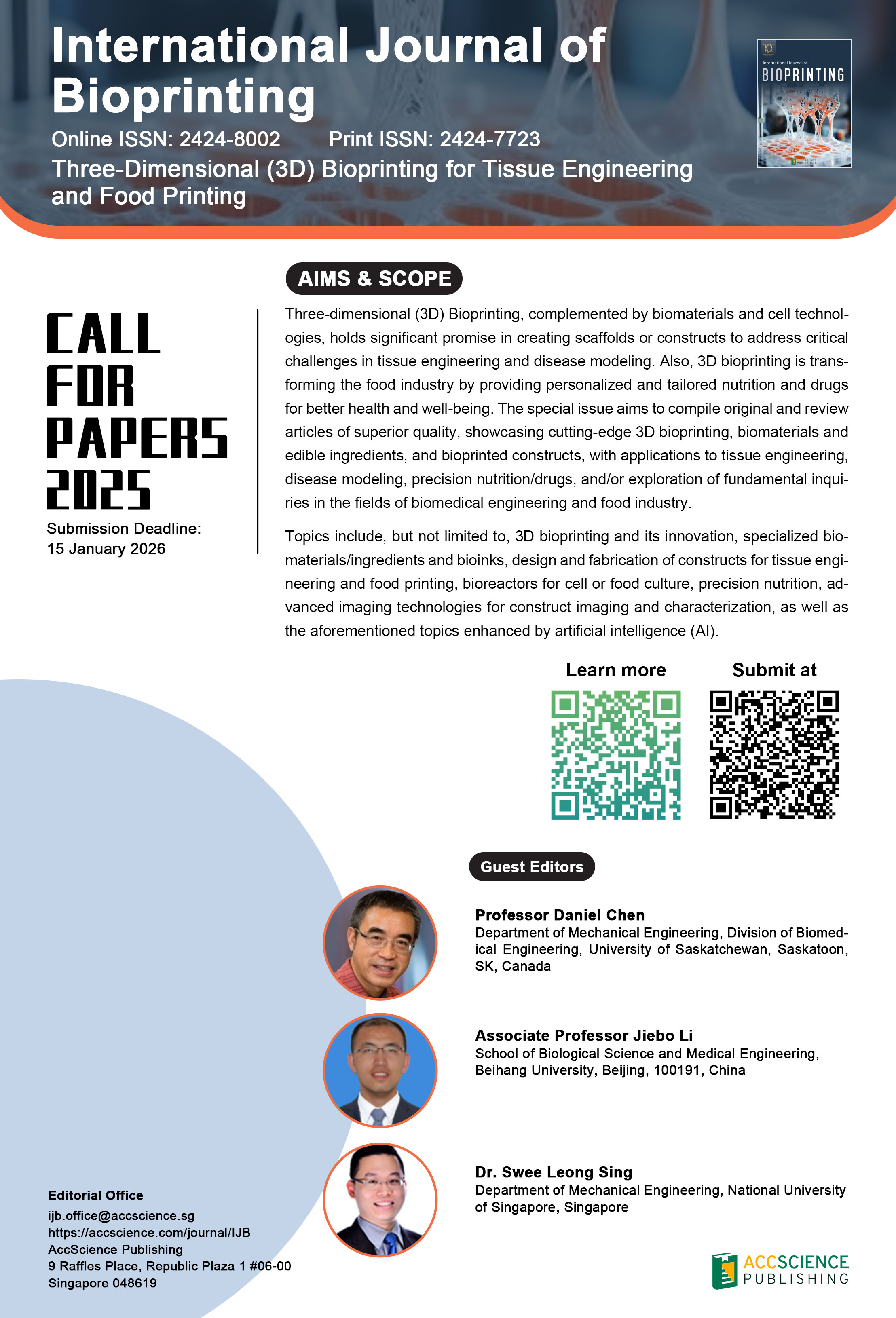
Dear Colleagues,
Three-dimensional (3D) Bioprinting, complemented by biomaterials and cell technologies, holds significant promise in creating scaffolds or constructs to address critical challenges in tissue engineering and disease modeling. Also, 3D bioprinting is transforming the food industry by providing personalized and tailored nutrition and drugs for better health and well-being. The special issue aims to compile original and review articles of superior quality, showcasing cutting-edge 3D bioprinting, biomaterials and edible ingredients, and bioprinted constructs, with applications to tissue engineering, disease modeling, precision nutrition/drugs, and/or exploration of fundamental inquiries in the fields of biomedical engineering and food industry.
Topics include, but not limited to, 3D bioprinting and its innovation, specialized biomaterials/ingredients and bioinks, design and fabrication of constructs for tissue engineering and food printing, bioreactors for cell or food culture, precision nutrition, advanced imaging technologies for construct imaging and characterization, as well as the aforementioned topics enhanced by artificial intelligence (AI).
From cells to organs: Technical challenges of two-photon polymerization in biomedical engineering
Bioprinting and in vitro characterization of alginate–gelatin constructs incorporating human umbilical vein endothelial cells for potential cardiac tissue engineering




